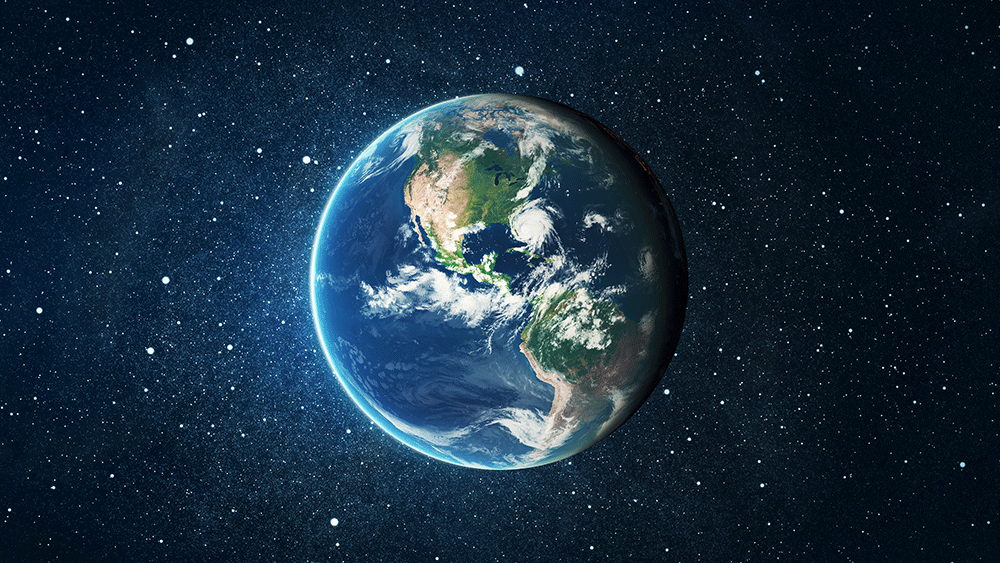Study Reveals Humans Altered The Earth's Tilt Within The Last Three Decades
A recent study reveals humans altered the Earth's tilt within the last three decades after it was published in the journal Geophysical Research Letters that the Earth's tilt has experienced a significant change of nearly 80 centimeters (31.5 inches) over the course of 17 years, from 1993 to 2010.
Author:Camilo WoodReviewer:Dexter CookeJun 21, 20233.4K Shares344.5K Views

A recent study reveals humans altered the Earth's tilt within the last three decadesafter it was published in the journal Geophysical Research Lettersthat the Earth's tilt has experienced a significant change of nearly 80 centimeters (31.5 inches) over the course of 17 years, from 1993 to 2010. According to the researchers involved in the study, the extraction of approximately 2,150 gigatons of groundwater by humans has resulted in the shift in the Earth's tilt.
The implications of this study are undeniably concerning and further raise questions about humanity's role in exacerbating climate change issues. However, validating the researchers' estimates poses a significant challenge.
One possible method to confirm these findings lies in examining the Earth's rotational pole, which is the point around which the planet rotates. This point is subject to movement, known as polar motion, which occurs due to various factors.
Scientists explain that the Earth's rotational pole can be influenced by the Earth's crust, as well as the distribution of water across the planet. The mass distribution of the Earth's crust plays a crucial role in determining the Earth's tilt.
An analogy to understand this concept is to imagine a spinning top with a slight addition of weight. The added weight alters the top's spin. In this case, the Earth represents the top, and the groundwater level is the weight affecting its spin. Consequently, the Earth's rotation experiences variations depending on the redistribution of water.
However, scientists emphasize that the rotational pole naturally undergoes significant changes on its own. Yet, the movement and alterations in groundwater distribution appear to have the most significant impact on the drift of the rotational pole. Consequently, some researchers express concerns about the potential implications of these movements for the Earth's tilt in the future.
Furthermore, the redistribution of the Earth's groundwater is likely linked to the rising global sea levels, a growing concern in recent years. The research suggests that efforts to reduce the depletion of groundwater could also influence the changes in the Earth's tilt drift. However, these attempts would need to be sustained over several decades to produce a noticeable effect.
Conclusion
The recent study highlights that the Earth's tilt has experienced a substantial change attributed to human activities, particularly the extraction of groundwater. This finding adds to the mounting evidence of human influence on climate change. The study also underscores the potential consequences of alterations in groundwater distribution for the Earth's rotational pole and emphasizes the importance of conservation efforts to mitigate these effects.
Jump to

Camilo Wood
Author
Camilo Wood has over two decades of experience as a writer and journalist, specializing in finance and economics. With a degree in Economics and a background in financial research and analysis, Camilo brings a wealth of knowledge and expertise to his writing.
Throughout his career, Camilo has contributed to numerous publications, covering a wide range of topics such as global economic trends, investment strategies, and market analysis. His articles are recognized for their insightful analysis and clear explanations, making complex financial concepts accessible to readers.
Camilo's experience includes working in roles related to financial reporting, analysis, and commentary, allowing him to provide readers with accurate and trustworthy information. His dedication to journalistic integrity and commitment to delivering high-quality content make him a trusted voice in the fields of finance and journalism.

Dexter Cooke
Reviewer
Dexter Cooke is an economist, marketing strategist, and orthopedic surgeon with over 20 years of experience crafting compelling narratives that resonate worldwide.
He holds a Journalism degree from Columbia University, an Economics background from Yale University, and a medical degree with a postdoctoral fellowship in orthopedic medicine from the Medical University of South Carolina.
Dexter’s insights into media, economics, and marketing shine through his prolific contributions to respected publications and advisory roles for influential organizations.
As an orthopedic surgeon specializing in minimally invasive knee replacement surgery and laparoscopic procedures, Dexter prioritizes patient care above all.
Outside his professional pursuits, Dexter enjoys collecting vintage watches, studying ancient civilizations, learning about astronomy, and participating in charity runs.
Latest Articles
Popular Articles